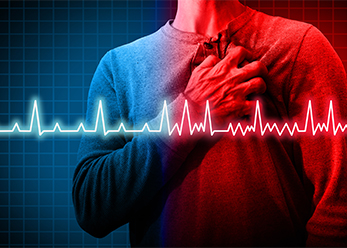What causes cardiomyopathy?
Based on its general cause, cardiomyopathy may be categorised by medical specialists. These two groups fall into:
- Ischemic cardiomyopathy is brought on by coronary artery disease or heart attacks (CAD).
- Experts occasionally are unsure of what causes cardiomyopathy (idiopathic). Your risk of cardiomyopathy may be impacted by several causes or circumstances, such as:
- Connective tissue disorders are autoimmune conditions.
- Illnesses that cause high cholesterol, hemochromatosis, or sarcoidosis are examples of situations that harm the heart.
- Thyroid illness and other endocrine disorders.
- Family history of cardiomyopathy, heart failure, or sudden cardiac death.
- previous heart attacks
- Pregnancy.
What signs of cardiomyopathy are there?
Some sufferers of cardiomyopathy show no symptoms. Others may suffer the following as the illness worsens:
- Fatigue.
- Heart flutters (rapid heartbeat).
- Breathing difficulty (dyspnea).
- Edema or swelling of the ankles, calves, or legs.
- Syncope (fainting) (fainting).
DIAGNOSIS AND TESTS
How would I be diagnosed with cardiomyopathy?
You will visit a cardiologist in Chennai if your healthcare practitioner believes you have a heart condition (heart specialist). A cardiologist conducts a thorough evaluation that could include many diagnostic tests. You might have
- Ambulatory monitoring makes use of equipment to monitor your heartbeat.
- Cardiac CT creates a video of your heart and blood vessels using X-rays.
- Radio waves and magnets are used in cardiac MRI to produce images of your heart.
- An echocardiogram employs sound waves to show your heartbeat and blood flow.
- The electrical activity of your heart is captured by an electrocardiogram (EKG).
- A steady increase in heart rate is used in an exercise stress test to determine how your heart reacts.
What is the treatment for cardiomyopathy?
Treatment for cardiomyopathy focuses on managing your symptoms. The course of the disease is also slowed by treatment. You will get routine examinations to monitor the condition of your heart.
Your doctor might advise:
- Medication: Heart drugs may increase blood flow, reduce symptom severity, or address underlying health issues. You could use cholesterol-lowering medicines or blood thinners.
- Arrhythmia-treating equipment: Pacemakers and implantable cardioverter defibrillators (ICDs) are used to treat erratic heartbeats. These gadgets monitor your heartbeat. When an arrhythmia begins, they send electrical impulses to your heart.
- Devices that increase blood flow: Some gadgets make your heart’s blood-pumping process more effective. Devices in cardiac resynchronisation therapy (CRT) regulate the heart’s left and correct side contractions. Your heart is assisted in pumping blood with a left ventricular assist device (LVAD).
- A heart specialist in Chennai advises heart surgery if you have severe symptoms or underlying heart issues. Open heart surgery or a heart transplant are typically only suggested by healthcare professionals after all other options have failed to provide relief.
